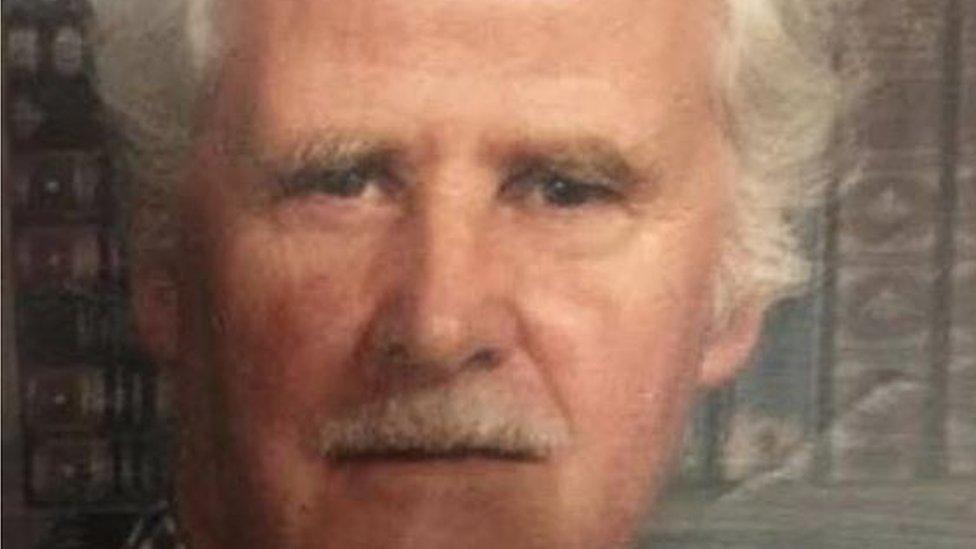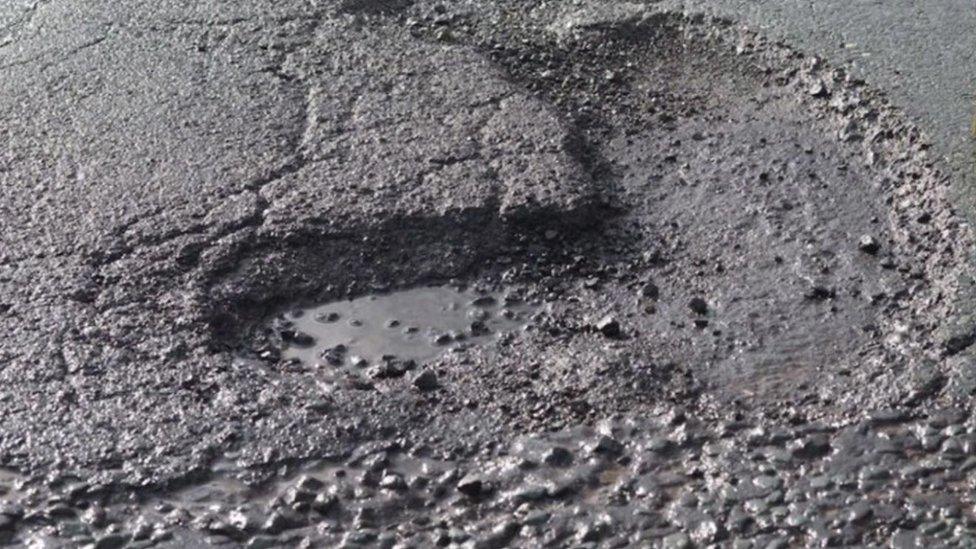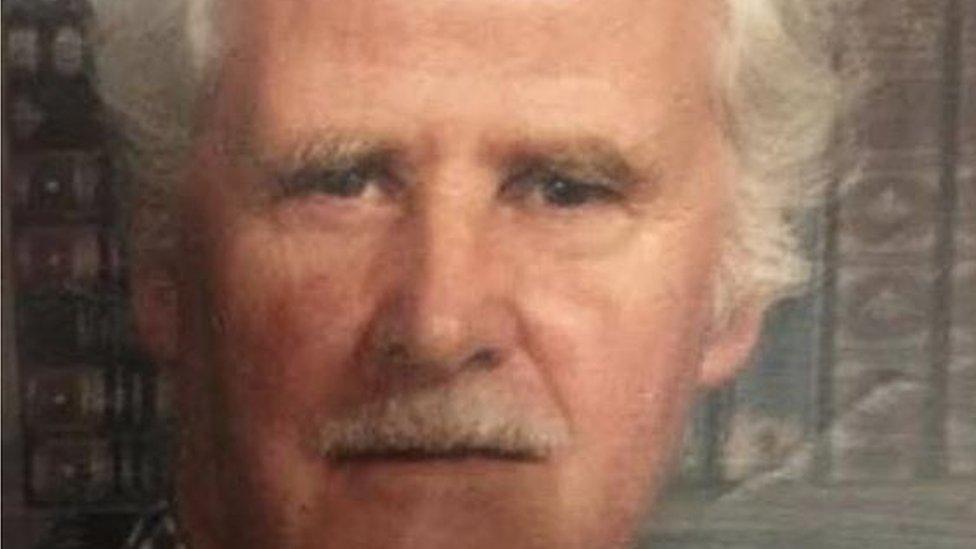Roger Hamer death: Coroner fears rise in pothole-related road deaths
- Published

Cyclist Roger Hamer "probably" died after hitting a pothole, an inquest heard
New government guidelines relaxing the rules regarding repairs to potholes could lead to more cyclists being killed, a coroner has warned.
Previous Highways Authority rules required that potholes of 40mm or above should be automatically repaired.
A new policy sets 40mm as the level at which potholes are only investigated, with individual councils then deciding whether to make repairs.
Coroner Peter Sigee said the policy "increases the risk of further deaths".
His comments followed an inquest into the death of Roger Hamer, 83, who was flung from his bike in Ramsbottom, Greater Manchester.
The inquest found Mr Hamer "probably" died after hitting a pothole in Bury New Road.
Mr Sigee, assistant coroner for Greater Manchester North, later sent an advisory report, external to Bury Council and the Department for Transport (DfT).
He warned "action must be taken to prevent future deaths" related to potholes.

The new guidelines give councils more discretion in deciding which potholes should be repaired
He highlighted concerns regarding the DfT's new national code of practice, which was published in October 2016.
He said the code means councils do not have to automatically repair holes in the road, putting road users at risk.
"I consider that the new procedure will increase the risk of future deaths, in particular to cyclists," Mr Sigee wrote.
The coroner's report also raised concerns including:
The quality of inspections of potholes in Bury New Road prior to Mr Hamer's death
A lack of markings of potholes which could have highlighted them to Mr Hamer
The absence of a Highway Authority procedure for effective investigation of significant incidents
Mr Sigee said a lack of images, measurements or details of inspections in January and February 2016 "hindered" the jury's ability to make more detailed findings following Mr Hamer's death.
Google Street View images showed the location of the pothole showed signs of wear and cracking, the coroner said.
The jury also accepted evidence from a police and a Highway Authority engineer indicating it "would have continued to deteriorate until it was repaired".
Bury Council said the new national code of practice was a "move towards a more risk-based approach for highway maintenance".
It said it was "not statutory" and authorities have "discretion to apply its own policies based on its own risk assessments and priorities".
The DfT said it had responded to the assistant coroner.
A spokesman said the department was giving councils "record levels of capital funding" to improve roads and repair potholes.
He added it was "vital" councils spend it to keep roads in good condition to keep users safe, especially cyclists.
- Published11 August 2017
